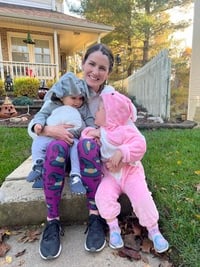September 11, 2001 will be a date many Americans will never forget. A day that no matter how hard you might try, you'll always remember what you were doing at that exact time you heard about the first plan crash. I do. I was heading to my child development and psychology class. I was already in the halls when someone ran out of a room and said “A plane hit the tower.” Normally, I'd ignore out of blue things like that, but panic was in his voice and his face was a mix of serious and shock. I followed him back into the room and everyone was glued to the television. Live feed and breaking news story about the North Tower being struck. It was not immediately confirmed whether it was an accident or not, but within two hours both towers had been struck and collapsed. Another plane crashed into the pentagon and a fourth went down in Pennsylvania. There were no survivors from any of the flights and nearly 3,000 victims died that day.
As September 11th approaches this year marks the 10th anniversary, news coverage and tributes will plaster the televisions and schools will be talking about. If you're child was not old enough or even born yet, you may be apporached with many questions as they hear about it in the coming weeks.
Tips on how to talk to your children about September 11th 2001:
-
Let your child voice their emotions. If they came home from school after hearing about it and already know about war/terrorism it may be something that angers or scares them that it may happen again.
-
Confirm their thoughts: “ I understand you're feeling X way, it was a very scary event, but it was 10 years ago and although it was a sad day we hope it never happens again” (for young children, 10 years seems like a very long time)
-
Share your thoughts with them about that day. It's ok to share with them that it was a very sad or scary for you, it helps them feel reassured.
-
Older kids may have a lot of questions and it's best to be truthful with them so they know what to expect in school or when they see it on the news; but use concepts and wording that your child will understand, you know them best.
-
Focus on the positive. Reassure your child that there may have been some bad things happen that day, but bring up all the heroes who stepped up to help and remind them that the world is still full of nice people.
-
Get hands on. Kids always love a project and sometimes the best way to talk about things is while doing something about it. If you know someone who died that day, put together a wreath for their grave. Make a thank you gift for fire fighters or police officers and let your child hand deliver it to a local station for doing everything they do to protect our nation. Contact your local Red Cross and see if they have a need for any donations or special request going on.
I have an almost 7 year old and this is along the lines of what I said to her last year that helped:
There are some people in the world that do not like what Americans do and how we live. They don't understand our liberty and justice for all (she knows the pledge of allegiance so this helped)
They wanted Americans, people like you and me to feel afraid so that they can bully us, but the United States is a strong county with lots of people who love one another so we were able to come together on that sad day and help everyone that best we knew how.
She of course had a lot of questions, but after that she was able understand more WHY it happened and I feel confident that this year as she's in First Grade when it comes up in school, she'll be prepared, educated and understanding of the situation


